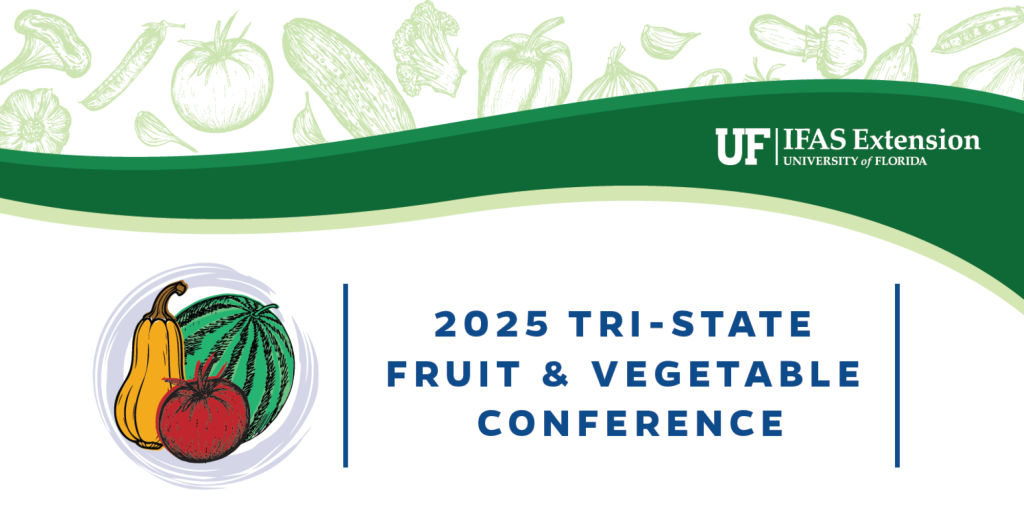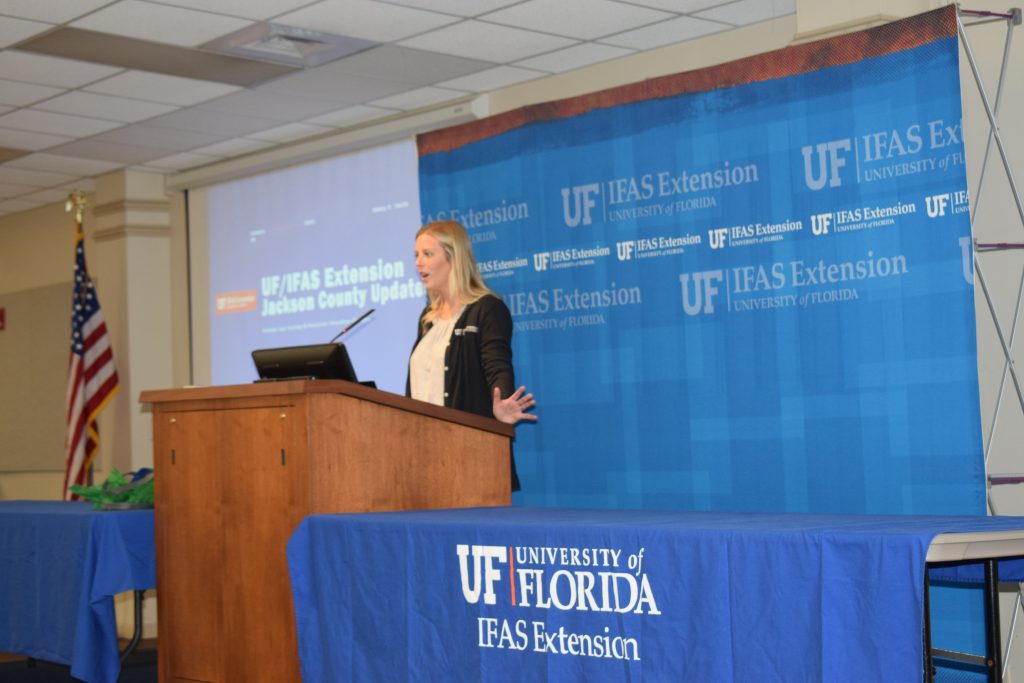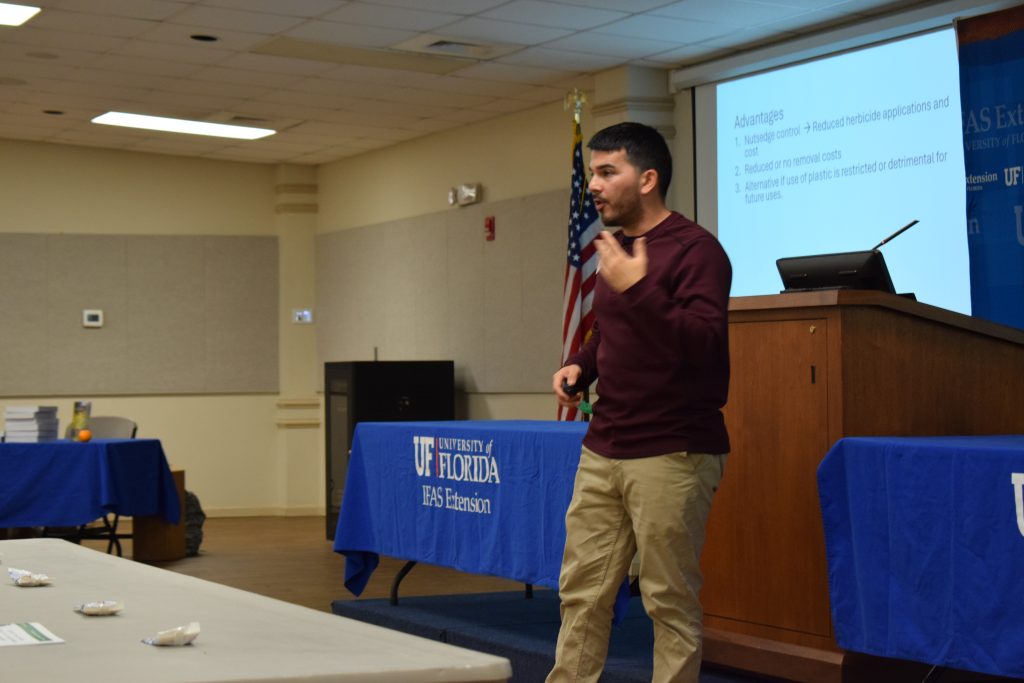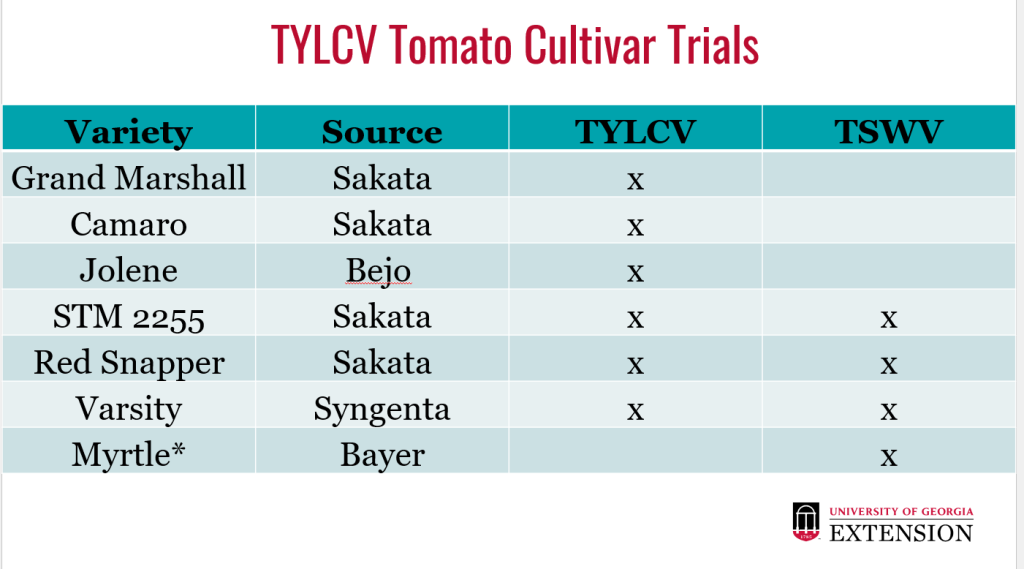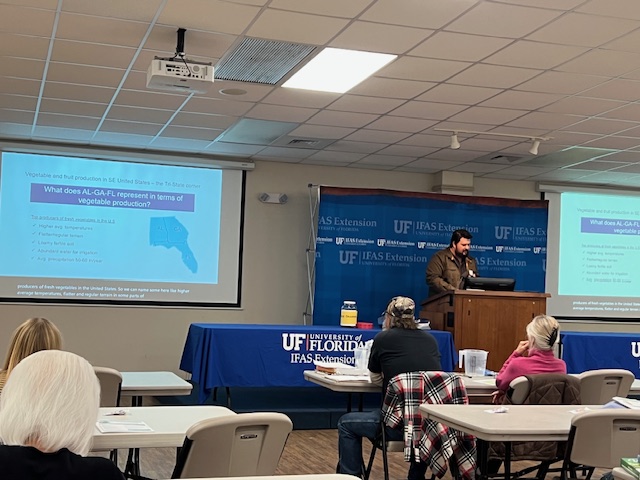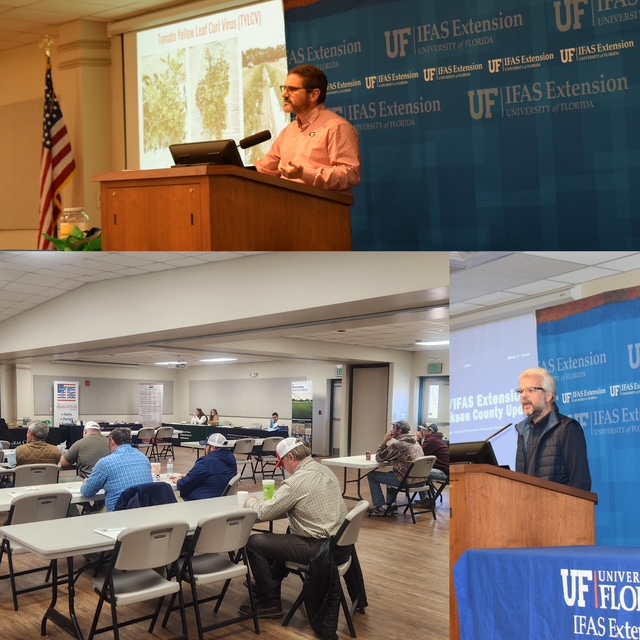The 2025 Tri-State Fruit & Vegetable Conference was held on Tuesday, January 28. There were 5 educational presentations and a tradeshow with 11 booths. Speakers included UF/IFAS Extension faculty, UGA Extension, and Alabama Cooperative Extension specialists discussing topics on Florida pesticide regulation changes, nutrient management technology, vegetable crop variety updates, and pest management. The event also offered Continuing Education Units (CEUs) for pesticide applicators in Florida and Georgia. This article provides links to review or print the presentations from this conference.
The first presentation was given by Abbey Smith, Horticulture Agent UF/IFAS Extension in Jackson County. Abbey reviewed the current pesticide testing changes that will occur in Florida throughout 2025. She also discussed new pesticide label changes that will correlate with the efforts of the Endangered Species Act (ESA). Abbey also highlighted that she is now able to offer petiole sap testing services for growers in Jackson County and explained how the testing service works and what the benefits of utilizing the service are. To access her presentation, please visit: Smith- Jackson County Extension Updates
Raymond Balaguer gave the second presentation. Raymond is the Commercial Horticulture, Small Farms, and Natural Resources Extension Agent for UF/IFAS Extension Suwannee County, based in Live Oak, Florida. Raymond presented on how polymer-coated paper mulch in watermelon production could be an alternative for nutsedge control. Nutsedge is a perennial sedge that is a common weed in the Panhandle of Florida and regularly disrupts the production of vegetables grown under plastic mulch. Single-use plastic is used at almost every step of food production and around 40 percent of all plastics in agriculture us are plastic mulches. To both combat the nutsedge and limit the use of plastics, UF/IFAS and Smurfit WestRock collaborated to create a paper mulch product starting in 2019. Continue reading on this awesome collaboration, by using the following link: Balaguer- Polymer-coated Paper Mulch for Nutsedge Control
The third presentation was given by Dr. Ted McAvoy, Assistant Professor and Vegetable Extension Specialist for University of Georgia (UGA), Tifton Campus. His research focuses on vegetable variety trials, soil amendments, cover crops, fertility management and variable rate plant spacing. Dr. McAvoy gave a tri-state update on tomato and watermelon trials he has been conducting throughout the past year, including trials focusing on Tomato Yellow Leaf Curl Virus (TYLCV) and Tomato Chlorosis Virus (ToCV) and tomato soil amendments. To review the results of Dr. McAvoy’s research trials, please using the following link: McAvoy- 2025 Tri-State Tomato and Watermelon Update
Dr. Paulo Cremonez gave the fourth presentation. Dr. Cremonez is an Assistant Professor and Extension Specialist of Vegetable and Fruit Entomology at Auburn University. Dr. Cremonez gave a brief overview of vegetable and fruit crop integrated pest management with an emphasis on whiteflies. Dr. Cremonez also discussed a study focused on how trichome presence and chemical control affects whitefly populations in cross-commodity intercropping. Read about this and other studies conducted by Dr. Cremonez and his team through this link: Cremonez- Whitefly Control in Cucurbits
The last presentation was given by Dr. Pamela Roberts. Dr Roberts is a Professor of Plant Pathology and the State Extension Specialist for Vegetable Pathology at the University of Florida at the Southwest Florida Research and Education Cetner in Immokalee, Florida. Anthracnose is one of the most severe diseases in vegetable production, specifically watermelons, cantaloupes, and cucumbers. Dr. Roberts along with several other specialist from various states in the southeast, were funded a $4.8 million grant for a 4-year project titled “Sustainable Anthracnose Management for Watermelon and Cucumber Growers in the Eastern U.S.” To read over the study and the data that was presented for 2024, please use the following link: Roberts- Innovative Strategies for Sustainable Anthracnose Managemetn in Watermelon and Cucumber: A Collaborative Approach
Thank you to our sponsors who contributed to this event. Without them, the Tri-State Fruit & Vegetable Conference or our luncheon would not have been possible. Mark, your calendar for the 2026 Tri-State Fruit & Vegetable Conference on January 28, 2026!
- 2026 Citrus Health Forum- February 19 - January 9, 2026
- 2026 Tri-State Fruit & Vegetable Conference – January 29 - November 7, 2025
- Direct Marketing: How Panhandle Produce Growers Are Adapting - October 10, 2025

